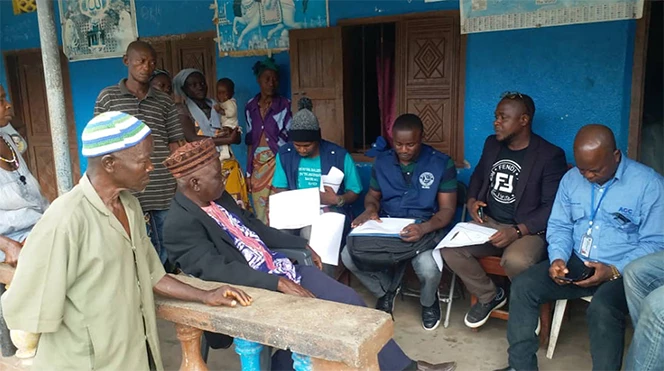Today we’re launching a new blog series, “TFSCB: Statistics for a Better World.” Read on to learn about what the TFSCB is and how it catalyzed sustainable development in data poor countries.
The Trust Fund for Statistical Capacity Building (TFSCB) is a long-running trust fund supported by the United Kingdom’s Department for International Development, IrishAid, as well as generous donations from Korea, Canada, France, Germany, Netherlands and Switzerland. In its 20 year-run, TFSCB has supported a wide variety of statistical projects in low and middle-income countries all over the world, with the majority assisting Sub-Saharan Africa.
Data are critical for good decision making. The demand for more and better data greatly increased in recent years with the global commitment to achieving the Sustainable Development Goals (SDGs) by 2030. However, while demand has risen, resources to invest in data and statistics have historically been low. Addressing this critical gap has been the mission of the TFSCB over the last two decades.
Over the past twenty years, technology has evolved exponentially. Today, there’s a vast array of different types of data available to us – geospatial data, remote sensing data, text and big data – and we can take advantage of new methods like artificial intelligence and machine learning. With the advent of new corporations and data partners like Google, Apple, LinkedIn, and Uber, we have become much more connected and our relationship to and understanding of data has shifted accordingly. To adapt to these changes, the TFSCB expanded its focus to include innovation and Open Data, while still supporting more traditional (and much needed) statistical capacity building and national strategies for the development of statistics (NSDS).
In this blog series, we’re aiming to show the human impact that data can achieve by sharing compelling examples of how statistics can catalyze results in low income countries. Today, we’re covering a recent project in Sierra Leone, where the TFSCB supported data collection and analysis of Sierra Leone’s Integrated Household Survey in 2018. This was a pivotal period for Sierra Leone: the government was transitioning to new leadership for the first time in ten years, while the country was striving to recover from the recent Ebola outbreak. The TFSCB assistance covered the whole lifespan of the survey, including developing the questionnaire and sampling, introducing a new data capture system and geospatial data, training field workers, monitoring quality control, and helping to clean and rigorously analyze the data. Through this work, Statistics Sierra Leone’s capacity to collect and analyze survey data was substantially enhanced.
One of the major innovations that this project achieved was that from the data entry stage to the data monitoring phase, multiple new applications – like DropBox, Stata, and WhatsApp – were used to streamline the data collection process. Using these platforms allowed for prompt intervention for data entry errors, resolving data quality issues quickly. The data collection was completed in December 2018 and the microdata will be disseminated in 2019. In addition to updating poverty and food security estimates and assessing the effects of increased petroleum prices on poverty, the data will be used as a baseline to assess the short-term impact on enrollment and out-of-pocket expenditures on education of the government’s flagship Free Quality Education program. Now Sierra Leone can look towards the future with more confidence, knowing that it can continue to design and execute compelling surveys and employ them in service of data-driven decision-making. For queries on the SLIHS and its policy research applications please contact Alejandro de la Fuente (adelafuente@worldbank.org) and Elizabeth Foster (efoster1@worldbank.org).





Join the Conversation